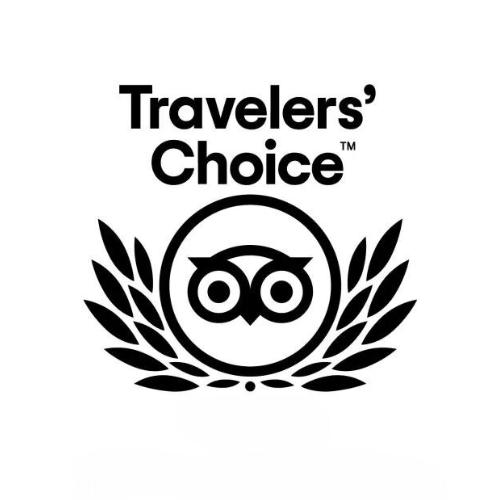The following notes before traveling abroad will help you have a smoother trip than ever before:

Check visas and passports:
Visas and passports are the two most important documents to prepare before departing for a foreign trip because most countries require passports to be valid for at least 6 months from entry. If you are a digital nomad, you should have a passport at least 2 years old. Need to apply and plan to apply for a visa for places to go and can go. Remember to scan and copy important documents, including visas and passports, to use in case of lost documents.
Plan your itinerary:
To have a memorable trip, you first need to plan it in detail. Defining a time and place will help you avoid falling into forgetfulness. Write down areas of interest such as local relics, famous eateries, check-in places…so as not to miss exciting experiences at destinations.
Budgeting:
To avoid spending more money than expected, you should plan specifically for the trip. Some prepaid expenses can be mentioned as airfare, hotel, visa…Meanwhile, eating, playing, traveling…are expenses that can be considered depending on each person’s pocket. You can also view the travel time of the year to have an economical trip, avoiding your Travel at peak times such as summer holidays, holidays, and weekends because the cost of Travel at this time will be higher than average days (from bus fares, room rates, services, food).
Book before traveling abroad:
It’s exhausting to arrive in a new country and need help finding a place to stay. No one wants to go through all that after hours of flying. So make sure you book your hotel room before you start your trip.
Save significant phone numbers:
The phone numbers of airlines, banks, credit card companies, and hotels are essential to remember. If you are more careful, you can write these numbers down in a notebook if your phone is stolen or damaged.
Buy travel insurance:
When buying travel insurance, you will enjoy many benefits if, unfortunately, there are risks such as natural disasters, terrorism, riots…In addition, travel insurance also pays you many items, such as medical bills, compensation for losses when the travel itinerary is changed, and compensation when luggage is stolen.
Contact the bank:
The next thing you must remember is to contact the bank before departing for an overseas trip. International transactions are still required if you want to use a credit card, debit card, or cash. Your bank may freeze your account if it detects an unusual transaction. Contact your bank or card company to inform them that you will make international transactions.
Learn some local phrases:
You can learn some essential phrases such as hello, thank you, sorry, where is this, I was stolen…in the local language to easily ask for directions and ask others for help when lost. In addition, you should also learn some customs, especially how to dress so as not to be surprised and “shocked” by the culture.
Make a list of things to bring:
How can you remember all the things that need to be obtained? And most visitors often miss something at home. Therefore, it is best to make a checklist to avoid being forgotten or confused, such as clothes, toiletries, cosmetics, medicines, and phone chargers…
Health check:
Although there are also doctors abroad, having the best health condition is much better. Therefore, schedule visits to your dentist, general practitioner, and any other medical professionals you often see.
Read more: Bun Dau Mam Tom: The paste in the past and the present
Register information with the embassy:
You can register your personal information with the embassy or consulate where you plan to travel so that they can assist in emergencies such as natural disasters or political instability.
Fully charge electronic devices:
In case of long transit time at the airport or flight delays, you should fully charge electronic devices such as phones, cameras, tablets, music players…
Review local apps:
Many local apps can help you learn more helpful information about destinations, so you should spend a lot of time exploring them.
Small tips for you to “fit” Vietnamese culture
Visitors need to behave appropriately in public places and worship spaces
First, Lily’s Travel would like to remind visitors not to wear a skimpy swimsuit to walk around the city after returning from the beach. Wearing too revealing swimwear when walking on the beach, riverside, or waterfalls is also unsuitable in Vietnam. The beauty of Vietnam is classy and luxurious, so it is ideal for only a few revealing clothes. The dress code also needs particular respect at temples and pagodas. In 2016, a foreigner was asked to leave a sacred space for wearing only a bra and shorts.
Lily’s Travel also shared that while locals will only sometimes remind foreign visitors of the issue, they won’t be happy to see it in their eyes. Traveling to any country, visitors need to respect its values. Lily’s Travel also notes that visitors should pay attention and behave correctly at worship spaces in Vietnam. As in other countries in Southeast Asia, Vietnamese homes, restaurants, and workplaces all have a small space for worship. Vietnamese people often offer food and drinks to pay respect to their ancestors and attach great importance to the space at the worship area.
Therefore, when travelers visit homes or stay at local lodges, it’s also a good idea to pay attention to speech and behavior when approaching this space. Some caution is to take off your shoes, dress politely, and avoid intimate behaviors. The Vietnamese people consider them to be disrespectful actions.
The best center Vietnam tour: Tour in Vietnam















